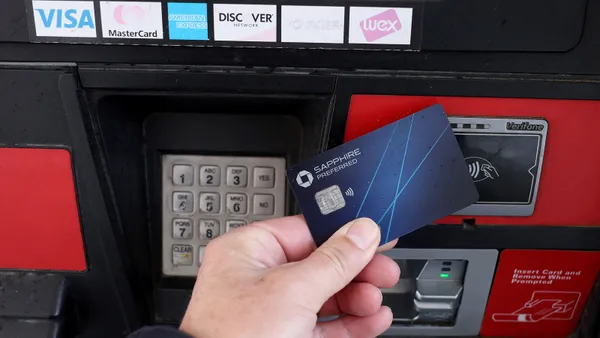Dive Brief:
- In response to the U.S. Department of the Treasury soliciting public comment on implementation of the Genius Act, the nonprofit Consumer Reports said Tuesday that it submitted a letter urging the agency to adopt safeguards to protect consumers from potential risks in the stablecoin market.
- The consumer advocacy organization called for Treasury to adopt clear reserve, liquidity and redemption standards and bar stablecoin issuers from offering rewards or yield-like incentives. It also urged the agency to prohibit government-like imagery or misleading terms, a standard the Federal Trade Commission has also adopted, per a Consumer Reports press release about the letter on Wednesday.
- The group recommended that the agency use technology to improve anti-money laundering, sanctions and due diligence protocols. Its letter also called upon the Treasury Department to track the impact of fraud, redemption failures and confusion, the release said.
Dive Insight:
President Donald Trump enacted the Guiding and Establishing National Innovation for U.S. Stablecoins Act, better known as the Genius Act, in July. As the agency seeks public input, advocacy organizations have weighed in on the Treasury Department’s plans to implement the Genius Act.
In determining how to implement the new law by way of regulations, the Treasury Department asked for public comments to be submitted by a Nov. 4 deadline.
Following passage of the law, Consumer Reports criticized the law for failing to create federal insurance protection against consumer losses and to mandate external audits to verify consumer reserves. It also faulted the law for inadequate federal oversight.
While the law requires stablecoin issuers to share their redemption policies, it doesn’t mandate that they redeem consumers’ stablecoins for dollars within a reasonable and enforceable timeframe, the group said.
“We recognize the opportunity stablecoins present to modernizing the payments system, enhancing financial inclusion, and promoting broader innovation in the financial and payments ecosystem,” the organization wrote in its recent letter to the Treasury Department.“The rapid growth of stablecoins highlights their appeal, but as the trajectory seemingly propels them toward becoming integral to the plumbing of the payments system, effectively functioning as core payment utilities, their regulation must evolve to meet their increasing significance and attendant risks.”
A group of bank associations, including the American Bankers Association, also submitted a public comment letter to the Treasury Department in response to its advance notice of proposed rulemaking. In its Nov. 4 letter, the associations urged the agency to prevent stablecoin issuers from paying interest or yield on payment stablecoins and prohibit such tokens from being used as investments.
“The GENIUS Act’s prohibition on a payment stablecoin issuer paying interest or yield on payment stablecoins reflects Congress’s intent for payment stablecoins to be used for transactions and not as investment vehicles,” their letter said.
The bank associations also urged the Treasury Department to be mindful of not creating problems for the existing financial system.
“The digital assets landscape is evolving rapidly, and thoughtful, balanced rulemaking is needed to ensure it develops in a way that supports — not disrupts — the broader financial system,” they wrote in their letter. “By honoring and strengthening Congress’s interest prohibition, regulators can foster responsible innovation while protecting consumers, preserving access to credit, and promoting economic stability.”












